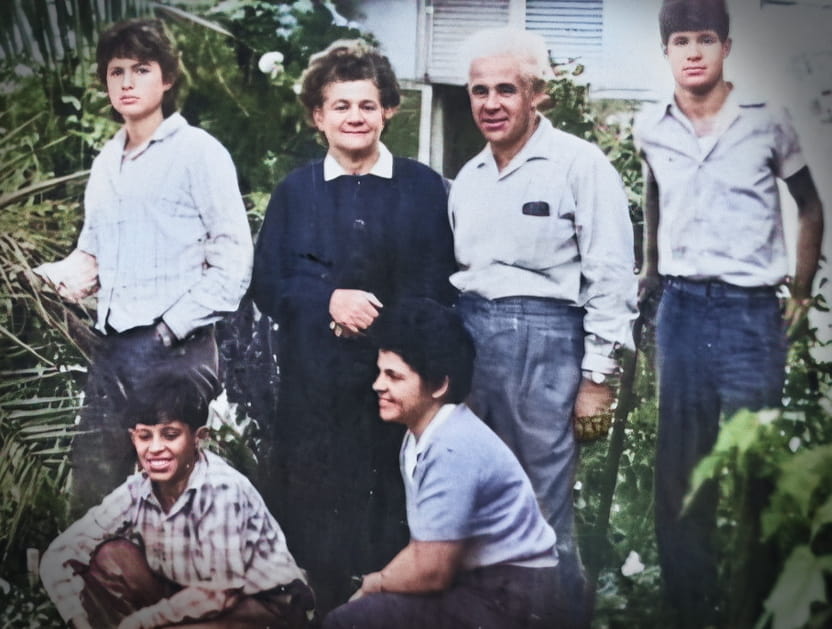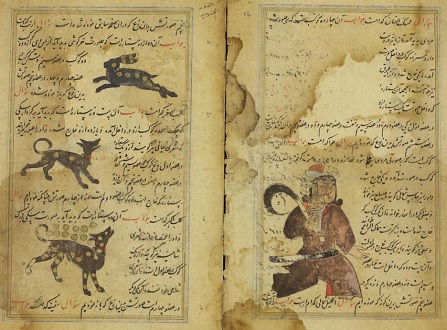Autobiographical interviews of Jews born in German speaking countries ("Yekkes") - 50/60 years after their immigration to Israel
להגדלת הטקסט להקטנת הטקסטBiographical data: Born 03/23/1926, Duesseldorf. Three years in the Montessori school in Aachen. 1935 emigration to Palestine. Further attendance of schools (in Jerusalem, in a kibbutz, in Ben Shemen youth village). Worked as carpenter and handicraft teacher, later as planner and organizer of professional training for woodworking. ; The life of the families Strauss and Buber before their emigration: Despite the emigration at the age of nine, Emanuel Strauss considers himself a German-speaking person. Analysis of his affiliation with both the German- and the Hebrew-Jewish culture. About his father Ludwig Strauss and his grandparents (their business). His father's education and academic career until their emigration in 1935 and his literary activities. About his mother: Her work as housewife and her support of her husband's work. His father's economic situation was not very good until he started his teaching in Aachen; for 2 years he also worked as drama producer and at a theater in Duesseldorf. About Ludwig Strauss' socialist and religious attitude, which was influenced by his wife and her father Martin Buber. Ludwig Strauss' relationship to Martin Buber and their mutual help in their literary and scientific work. About Ludwig Strauss' many German friends and his affiliation with a circle of writers in Aachen. Emanuel Strauss hardly ever had antisemitic experiences in the Montessori school, but with children in his neighborhood. In 1934 Ludwig Strauss went on an exploratory journey to Palestine, which inspired him for his cycle of poetry “Land Israel”; he had encounters with people from kibbutz Hasorea. Emigration in 1935. ; The life of the Strauss and Buber families in Palestine/Israel: About the first year in Jerusalem and how his father learned Hebrew. Ludwig Strauss then decided to live in a kibbutz with the whole family; about the time in kibbutz Hasorea. They left the kibbutz after two years to offer their children better opportunities for studying. About the following year in Jerusalem: His father's Hebrew studies and literary activities (Ludwig Strauss became one of the few bilingual German-Jewish authors). It took his mother longer to learn Hebrew than his father, the children spoke Hebrew after half a year. Comments on his father's development concerning his language and his writings: Great ambitions because of his traditional Jewish origin, early interest in Eastern Jewish culture and Jewish religion, early membership in the Zionist movement; his relationship to the Jewish language and culture because of his friendships with Jews from Eastern Europe. Martin Buber's Polish, traditional-Chassidic origin. The parallel research of Ludwig Strauss on German literature and on Judaism and Zionism. - After the year in Jerusalem, the family moved to the youths village Ben Shemen. Emanuel Strauss' father first helped in agriculture, later he worked as a teacher. About his father's teaching in Jerusalem: Since 1947/1948 in the seminaries of the Aliyat Hanoar, since 1950 also at the university. His father's literary research work, which he had started briefly before his death (published posthumously by a student and friend). - How Emanuel Strauss and his brother got used to their new surroundings in Bet Shemen. The transition from German to Hebrew in the communication between the sons and father, whereas their parents continued to speak German with each other. About his paternal grandparents: His grandfather had died before Emanuel Strauss was born, his grandmother died in 1938. ; The Bubers immigrated in 1938. Martin Buber, his maternal grandfather, had taught at the “Freies Juedisches Lehrhaus” in Frankfurt before. Martin Buber knew Hebrew well, but his wife did not. Because of her and Emanuel Strauss' mother, the German language stayed alive in the family. - About Emanuel Strauss' and his brother's relationship to Martin Buber during their childhood and youth: conversations about politics etc. during common meals, their grandfather's willingness to listen when somebody told about his problems and his willingness to give advice. About Martin Buber's influence on Emanuel Strauss' and his brother's opinions (idea of a binational state and of a peaceful coexistence with the Arabs) and the conflicts at school resulting from these ideological views. About the teachers in Ben Shemen whose ideology was similar to Buber ‘s, and about the opposite ideologies at the Ludwig Tietz school. The influence of his father and grandfather on Emanuel Strauss' religiousness and his understanding of the beauty of the Jewish culture. About his mother's importance for his preservation of German (he read to her letters from the time in Germany, she told interesting and humorous stories about those days; the meaning of his mother's memories to him). (Intersection about the new edition of his father's writings by the Academy in Darmstadt). - Reasons for Emanuel Strauss' decision to become a carpenter: motivated by his handicraft teacher in Ben Shemen, support from his father and grandfather. General remarks about the problem of intellectuals who had studied in Germany, but had difficulties to find appropriate work in Palestine/Israel. About the important role of creativity in his grandfather's education. ; The father of Buber's wife was court architect of the duke of Bavaria; therefore Emanuel Strauss' grandmother was interested in cabinet making and in Emanuel's professional decision. Emanuel Strauss describes his further career: Handicraft teacher, later planner of the professional training for woodworking; general remarks on professional training. About the meaning of his knowledge of German for his professional activity and his reading and reception of Georg Kerschensteiner's pedagogical reform concept. About changes in Israel concerning the prestige of different professions: First, skilled trades were estimated higher, now academic professions are. Cooperation of Israel and Germany for professional training. The meaning of Israeli cultural values to him, Israel as his home. About his children: His two daughters' and his son's professions, the meaning of Judaism to his elder daughter and the meaning of European cultural values to his younger daughter.
| כותר |
Autobiographical interviews of Jews born in German speaking countries ("Yekkes") - 50/60 years after their immigration to Israel. |
|---|---|
| כותרים נוספים |
יהודים ילידי ארצות דוברות גרמנית - 50 שנה לאחר גירושם ועלייתם לארץ. |
| יוצרים נוספים |
דינור, מרים OHD (מראיין) Du-Nour, Miryam OHD (interviewer) שטראוס, עמנואל OHD (מרואיין) המדור לתיעוד בעל פה של מכון המחקר ליהדות זמננו ע"ש אברהם הרמן באוניברסיטה העברית בירושלים (בעלים נוכחיים) |
| שנה |
1991 |
| הערות |
Complete audio and transcript Includes short biography, questionnaire and topics of the interview. המדור לתיעוד בעל פה של מכון המחקר ליהדות זמננו ע"ש אברהם הרמן באוניברסיטה העברית בירושלים (234)134 A,B |
| מקום נוסף |
19. Mai 1991. |
| היקף החומר |
16 p. Playing time: A: 0:30:40 Playing time: B: 0:40:01 |
| שפה |
גרמנית |
| קרדיטים |
המדור לתיעוד בעל פה של מכון המחקר ליהדות זמננו ע"ש אברהם הרמן באוניברסיטה העברית בירושלים |
| מספר מערכת |
990044239140205171 |
בכל שימוש יש לציין את מקור הפריט בנוסח הבא:
המדור לתיעוד בעל פה של מכון המחקר ליהדות זמננו ע"ש אברהם הרמן באוניברסיטה העברית בירושלים
תנאי השימוש:
למחקר, לימוד והוראה
מותר להעתיק את הפריט ולהשתמש בו למטרות של לימוד עצמי, הוראה ומחקר בלבד.
מותר להעתיק את הפריט ולהשתמש בו גם למטרות הוראה ומחקר מסחריות.
חובה להעניק קרדיט ליוצר/ים בכל שימוש בפריט.
אסור לפגוע בכבודו או בשמו של היוצר באמצעות סילוף או שינוי של היצירה.
אין צורך לפנות לספרייה הלאומית לקבלת רשות שימוש למטרות לימוד עצמי הוראה ומחקר.
שימוש שאינו ללימוד עצמי, הוראה ומחקר, מותנה בקבלת הרשאה מבעל זכויות היוצרים בפריט ו/או מבעל האוסף. לא נדרש אישור נוסף מהספרייה הלאומית.
ניתן לפנות לספרייה הלאומית לקבלת פרטי הקשר של בעל זכויות היוצרים/בעל האוסף: טופס בקשה לבירור זכויות יוצרים
מידע נוסף:
הפריט כפוף לזכויות יוצרים ו/או לתנאי הסכם.
תנאי השימוש נקבעו בהסכם עליו חתמה הספרייה הלאומית.
אם לדעתך נפלה טעות בנתונים המוצגים לעיל או שקיים חשש להפרת זכות יוצרים בפריט, אנא פנה/י אלינו באמצעות טופס בקשה לבירור זכויות יוצרים
תצוגת MARC
יודעים עוד על הפריט? זיהיתם טעות?

 כניסה עם גוגל
כניסה עם גוגל
 כניסה עם פייסבוק
כניסה עם פייסבוק



